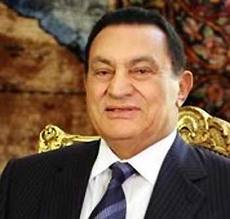Close

International Current Affairs
|
May 2012 International Current Affairs
|
|
|
| Category |
: |
International Current Affairs |
| posted Date |
: |
|
|
| Total No.of views |
: |
|
| Total No.of Comments |
: |
|
|
Rating:
|
|
 |
0 / 5 (0 votes)
|
|

May 2012
- Pakistan on 29 May 2012 successfully test-fired a short-range Hatf IX (Nasr) missile. The missile has a range of 60 kilometers and is capable of carrying nuclear warheads. An Egyptian court awarded former President Hosni Mubarak with life imprisonment on 2 June 2012. The former autocrat was convicted given his involvement in the murder of protesters during the uprising which dethroned him in 2011. The trial against Mubarak began in August 2011.
- The Union Cabinet on 17 May approved the 7.6 billion dollar TAPI (Turkmenisthan-Afghanistan-Pakisthan-India) gas pipeline project. The TAPI gas pipeline project originates from the central Asian nation Turkmenistan and reaches India via Afghanistan and Pakistan. It is also referred to as the “peace pipeline”. The TAPI gas project will have a total length of 1680 km. Of the total length 144km will be in Turkmenistan, 735km in Afghanistan, and 800km in Pakistan, bringing it to the India border. The pipeline will be entirely functional in 2018 and supply gas over the next thirty years. The pipeline would produce 90 million standard cubic metres of gas per day (mscmd). Of the total gas pumped through it, India and Pakistan will get 38 mscmd each and Afghanistan the remaining 14 mscmd.
- The Socialist Party leader Francois Hollande defeated the incumbent president Nicholas Sarkozy to become the 24th French President in the presidential elections held on 6 May 2012. Hollande is the second socialist president of France. The Socialist Party first won power in 1981, as François Mitterrand was elected President of France.
- Pakistan successfully test-fired Hatf III Ghaznavi missile on 10 May 2012. The missile has a range of 290 km and it can hit its target in India. The missile is capable of carrying nuclear warheads.
- Jordan`s parliament on 9 May 2012 passed a law to encourage a multiparty political system in the country. The move is one of the major reform measures announced by Jordan King Abdullah II, as the country goes to elections before the end of 2012. The new law allows for state funding of election but bans foreign aid to the parties.
- Aung San Suu Kyi took the oath of office to become an official member of Myanmar’s parliament on 2 May 2012. Suu Kyi, a pro-democracy leader of Myanmar for the first time has held public office since launching her struggle against authoritarian rule nearly a quarter century ago.